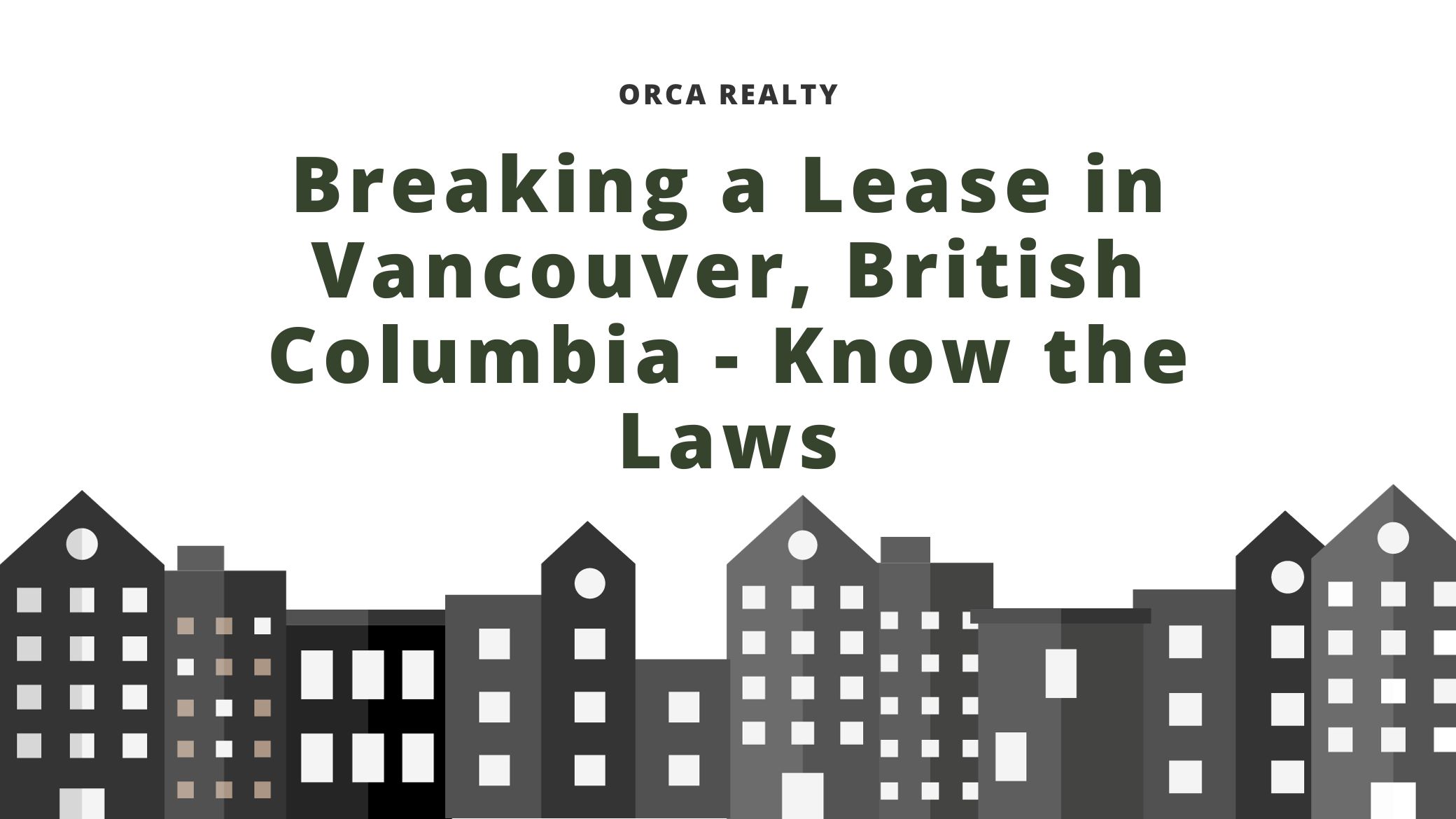As a landlord in British Columbia, navigating the complexities of breaking a lease can be a challenging and sometimes daunting task. Tenants may have valid reasons for wanting to terminate their lease early, but it’s essential for landlords to understand their rights, responsibilities, and the legal framework that governs these situations.
Throughout this article, we will outline the process you should take when a tenant wishes to break their lease. We’ll discuss the grounds on which tenants can legally terminate their lease early, the notice requirements, and other important information you should know.
Rental Agreements in British Columbia
Having a well-defined rental agreement is essential when offering your property for rent in British Columbia. The rental agreement should include the repercussions and sanctions associated with evictions or early lease termination. Landlords must also specify the valid grounds for legally ending a lease before its expiration.
The lease agreement should indicate how much notice tenants should provide if they intend to terminate their lease.
Month-to-month tenants need to provide a minimum one-month notice before its effective date and before the day that rent is due. Fixed-term tenants are not allowed to end their leases early, unless:
-
There is a mutual agreement between the tenant and the landlord.
-
There is a justifiable reason for breaking the lease.
-
It is ordered by an arbitrator.
The lease agreement should also include the landlord’s responsibility to ensure that the rental unit is re-rented out as soon as possible.
When a British Columbia tenant ends a lease early, the money they owe is usually based on what the landlord loses. But, as the landlord, you must also try to find another tenant to rent your property to reduce your losses, as required by the law.
If tenants break their lease, the landlord must try to find new tenants by advertising the rental at a fair price, showing it to interested people, and choosing a new tenant reasonably quickly.
However, if the landlord loses money despite making a genuine effort to find new occupants, the tenants might need to cover some or all of those losses. For example, if the landlord has to offer a $50 discount to get a new tenant, the tenants who broke the lease might have to pay an extra $50 each month for the remaining lease period.
On the other hand, if the landlord can find a new tenant willing to pay more than the previous tenants, that extra money can be used to offset any unpaid rent or damages the previous tenants owe.
Finally, a clear rental agreement should also indicate the rights of the tenants to sublet or assign the rental unit.
In British Columbia, renters can sublet or assign their lease to another tenant as long as they secure written approval from their landlords. However, if the tenant has at least six months left on the fixed-term lease, the landlord can’t unfairly say no to the tenant’s request.
These sublet and assignment rules apply to most rentals, except in one case. If the property is a non-profit housing under Section 2 of the Residential Tenancy Regulation, the landlord maintains the right to say no to the tenant’s request to sublet or assign the unit.
Unjustified Reasons to Break a Lease
In British Columbia, there is no specific list of unjustified reasons for ending the lease before it expires. In general, if the reason is not covered under justifiable reasons for breaking a lease, it is likely unjustified.
Justified Reasons to Break a Lease in British Columbia
British Columbia landlords must know that renters may end their leases early if they have valid reasons for doing so. Here are the acceptable reasons for breaking a lease in British Columbia:
1. Mutual Agreement to End Tenancy
In some cases, tenants may be allowed to end a lease early if they mutually agree with the landlords. For instance, tenants can try convincing their landlord to end their lease early by offering to assist in finding a new tenant.
This includes advertising the rental, allowing viewings, and cooperating with the landlord. If the landlord agrees, the tenancy can use the “Mutual Agreement to End Tenancy” form provided by the Residential Tenancy Branch.
2. Landlord Breach of Lease
In accordance with the Residential Tenancy Act, tenants can terminate their leases early if a landlord fails to follow an important condition of the lease and does not fix the problem within a reasonable time after receiving written notice from the tenant.
3. Victims of Domestic Violence
Victims of domestic violence have special provisions to end the lease early. If a tenant needs to ensure their safety or the safety of their children from family violence, they can break or pre-terminate a fixed-term lease by giving one month’s written notice.
In addition, tenants can also end their leases early if they have been assessed as needing long-term care or have been admitted to a long-term care facility. To do so, they need to give one month’s written notice to their landlords.
Also, tenants must provide the landlord with an approved document called the “Ending Fixed Term Tenancy Confirmation Statement.” This statement should be signed by a qualified third-party verifier.
If the reason for ending the lease early is due to family violence, here are some typical examples of third-party verifiers:
-
Medical practitioner.
-
Nurse practitioner.
-
Psychologist.
-
Practising lawyer.
-
Social worker.
-
Police officer.
-
Counsellor.
If the tenants are breaking the tenancy due to long-term care, some common examples of third-party verifiers include:
-
Medical practitioner.
-
Nurse practitioner.
-
Manager of a long-term care facility.
-
Occupational therapist.
-
Psychologist.
-
Social worker.
Bottom Line
As a landlord in British Columbia, it’s essential to understand the proper process for ending a lease to ensure you’re following the law. It’s important to ensure that your tenants also understand their rights and responsibilities.
If you have additional questions, feel free to consult with an experienced property manager who is well-versed in the local regulations in the British Columbia area. Reach out to Orca Realty, and we’ll be happy to provide assistance.
Disclaimer: Please note that the information provided in this blog is intended for general guidance and should not be considered as a replacement for professional legal advice. It is important to be aware that laws pertaining to property management may change, rendering this information outdated by the time you read it.




